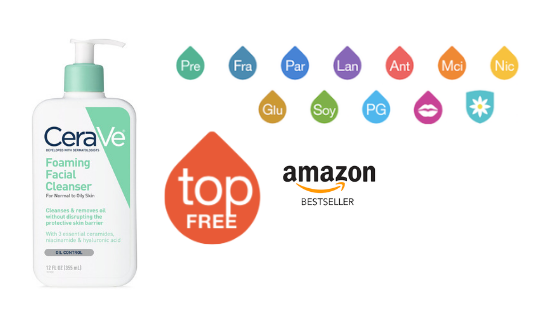Autoimmune conditions often involve debilitating inflammation. There are at least 70 distinct types of pathologies in this class, which includes rheumatoid arthritis, Crohn's disease, and psoriasis.
Both steroids and non-steroidal anti-inflammatory drugs have been used to treat inflammation for decades, with varying degrees of success. A different approach is now available, thanks to the success of the biotechnology industry.
Our immune systems produce a large number of biomolecules called cytokines that control the inflammatory reaction. One of these is called tumor necrosis factor, or TNF. It comes in two varieties, labeled alpha and beta, and is believed to be a key regulator of the entire class of pro-inflammatory cytokines. TNF binds to specific cell receptors to accomplish its mission. Thus, any drug that blocks this binding has potential to treat inflammatory damage.
The biotech industry has given us two approaches to blocking TNF. One is the use of monoclonal antibodies (Mab). There are four currently on the market, all with names that end in the letters “mab”: infliximab, adalimumab, certolizumab, and golimumab. Monoclonal antibodies are proteins produced from genetically engineered cell cultures. They must be handled with great care to prevent misfolding, and must be administered by injection. Antibodies generally “tag” foreign proteins for destruction by the immune system. The anti-TNF monoclonal antibodies are intended to simply block TNF from attaching to its receptors.
A second approach is to tie up TNF with receptors that are not attached to a cell. Etanercept (brand name Enbrel) is a protein produced by a different type of generically engineered cell culture. I think the name sounds similar to “intercept” and the function is like an intercepted pass in football: the drug takes the TNF molecule away from the intended receiver.
TNF blockers (also called inhibitors or antagonists) are praised as life-changing drugs for some patients. But there is a dark side to their power. Inflammation is on the body's first line of defense against infection, so these drugs leave the patients vulnerable to tuberculosis and other serious diseases. And as the name implies, tumor necrosis factor also plays a role in killing cancer cells. Paradoxically, TNF blockers also cause or exacerbate some autoimmune conditions including lupus. This effect is not understood.
The FDA updated the label requirements for this class of drugs in August 2009 to include stronger warnings about cancer and infections. The potential risks and benefits, both very high, make for difficult decisions about using TNF inhibitors.
References:
Gatto B, “Biologics targeted at TNF: design, production and challenges”, Reumatismo 2006;58(2):94-103.
Balancing the risks and benefits:
https://www.empowher.com/news/herarticle/2009/12/15/what-would-you-risk-save-your-eyesight
FDA information about tumor necrosis factor blockers
http://www.fda.gov/Drugs/DrugSafety/PostmarketDrugSafetyInformationforPatientsandProviders/DrugSafetyInformationforHeathcareProfessionals/ucm174474.htm
Linda Fugate is a scientist and writer in Austin, Texas. She has a Ph.D. in Physics and an M.S. in Macromolecular Science and Engineering. Her background includes academic and industrial research in materials science. She currently writes song lyrics and health articles.






Add a Comment3 Comments
Thanks! I agree completely with your comments about turmeric and fish oil. Here's a link to my article on turmeric:
March 3, 2010 - 1:00pmhttps://www.empowher.com/news/herarticle/2010/01/05/turmeric-curcumin-inflammatory-conditions
This Comment
I've had psoriatic arthritis for 8 years and in Feb 2010 got a very bad flare up in my knee. I had avoided taking any TNF inhibitor up to this point because the dangerous side effects really scared me but my pain was so bad this time I thought I'd have to give in. Of course my doctors told me the only thing that would give me relief were these dangerous drugs. I did some research on my own and found an herb called Turmeric that, believe it or not, has specific anti TNF properties. I bought some and have only been taking it for 5 days but I am already seeing significant improvement. I haven't taken it long enough yet to say I'm cured but I've already improved enough that I can say I have stopped considering taking any of those dangerous drugs. I also take about 4,000 mg of fish oil per day too, that may have helped too. Do a Google search on Turmeric, you'll find tons of good info on it including a good article in Time magazine written by a physician. Best of luck to all of you.
March 3, 2010 - 7:59amThis Comment
The potential risk for tuberculosis is not really high at all: "In over 4500 patients in the US and Canada, the rate is approximately 0.07 per 100 patient-years" Sounds like if you take Humira for a year you have less than a one in a thousand chance of getting tuberculosis. The chances of getting something like an ordinary upper respiratory infection are much higher, but I am very grateful to my government for allowing me to make the decision that a mild case of bronchitis is a penalty that I'm willing to pay in order to be able to walk without a cane. Humira has been a wonder drug for me.
Drug risks listed on labels are almost worthless. They don't give you the odds of the adverse event, nor do they give you the medical context of those that suffered such an event. Furthermore, whether such a risk is "worth it" is a subjective decision that can only be made by the individual suffering from the condition which the drug is designed to treat. If I were suffering from mild arthritis perhaps in my fingers bronchitis would be a risk not worth it. On the other hand, if I were a Crohn's patient facing a permanent ostomy with crippling joint pain resulting in disability a one in a thousand chance of TB might look like a good deal.
December 22, 2009 - 3:14pmThis Comment